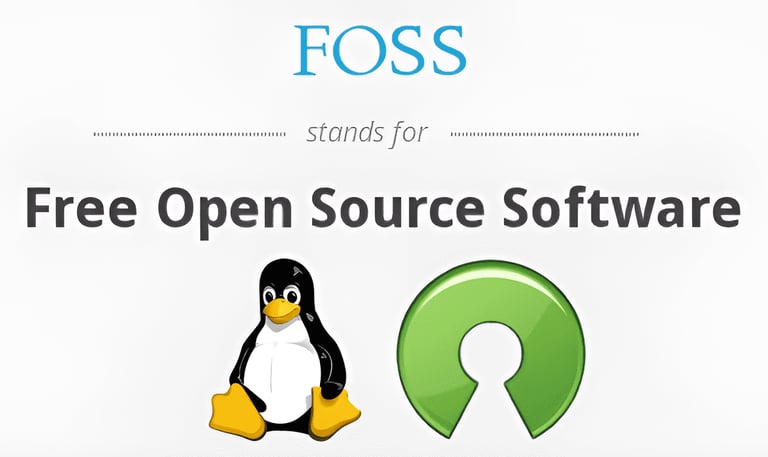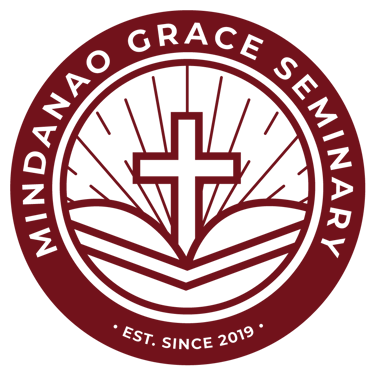Best Free Software for Pastors and Students
Whether you are in seminary, in ministry, or both, there is almost no escaping technology. In essence, we are writers. We either are researching papers, developing lessons, or writing sermons. FOSS apps can provide free, safe, and private solutions.
ARTICLES
Dr. B
9/2/20256 min read


Best Free Software for Pastors and Students
Whether you are in seminary, in ministry, or both, there is almost no escaping technology. In essence, we are writers. We either are researching papers, developing lessons, or writing sermons. I am sure there are some who are still using the trusty pen and paper to accomplish their tasks. There are definite advantages to that, as well as serious downsides. The vast majority of pastors and students are employing technology of one sort or another.
Applications and Software
Software refers to any program or data that allows your computing device to function. Applications (apps) are a form of software intended for the end-user to accomplish certain tasks. When you buy a computer, laptop, phone, or tablet, it most likely comes with an operating system, and that system has its own software (“apps”). For example, if you buy a PC, you are going to have Windows as the operating system, and you will be using Windows products. For writing, there is some version of Windows Office. If you want to add more “apps,” you can purchase them through the Microsoft Store. If you are using a Macintosh device (iMac), the operating system will be Apple, and it will have its own set of applications. This is also true of the iPhone as well as Android devices.
While having operating systems and applications bundled together makes things simple, there are also concerns. The primary issue is that you do not know what the software and applications are doing. Rest assured, they are not passive. All the proprietary systems with their built-in applications, as well as many third-party applications, are constantly collecting your data. This can include everything you input (messages, contact lists, photos, documents). For the sake of simplicity, your device is assigned a designation, and all data from that device is collected, stored, and analyzed. The primary purpose for this is to target you for advertising. But there are other purposes that might not be so innocent. Your devices take screenshots without you being aware of it. If you disable “location” on your phone, you are being tracked through available radio frequencies (Bluetooth and Wi-Fi). Even turning off the GPS location will not hide you. Cellphones are constantly tracked, and their location is recorded by tower triangulation. The operating system, the built-in software, and any third-party applications are collecting your data- constantly. In fact, any device connected to the internet (MESH, smart appliances, personal assistants, etc.), even your robot vacuum cleaner, is collecting and storing your data. Once in the servers, this data is there forever. You may not care today, but you might care in the future.
FOSS
FOSS (Free Open-Source Software) was created for people who were concerned about their data. First off, as the name indicates, the software is free to use. There is no purchase price or annual subscription. It is also free to distribute and even to modify. Open-source means that the code that the software is written in is readily available for anyone to view. This simply means that those who understand code can see that there is nothing hidden in the program. There is no command that will collect your data or allow back-door access to your device.
Word Processor
Most people are probably using Apple iWork or a version of Microsoft Office. Many Apple users still use Microsoft Office. We will need a word processor for documents. We might also want to have a spreadsheet and “slide” presentation app. I would recommend LibreOffice. This software can do everything that Office can do, and it can open Microsoft documents. There is very little difference between LibreOffice and Microsoft Office. For the average user, there is almost no learning curve. There is a large community of developers, forums for questions, and ongoing improvements. There are templates and extensions if you need them.
Grammar Checker
It is nice to be able to copy and paste a document to an online grammar and spelling checker. There are many available. The most common ones are Grammarly, QuillBot (Scribbr), Ginger, and GrammarCheck. They all work about the same way. Most have a free version and a paid version. Some offer browser extensions. I recommend LanguageTool. The user interface is simple and intuitive. You can check short documents for free. With an free account, there is unlimited usage. The online checker is FOSS, but the browser extension is not completely open source. There is an extension for LibreOffice.
Big Projects
Writing a book, compiling a sermon series, or researching for a paper in a word processor document can be done, but it is a challenge. It is nice to have a way to organize ideas, make chapters, and move text easily. For this you need more than an Office-type software. I recommend Quoll Writer. There are apps that are more powerful and have many more features. But they are also not intuitive, and the learning curve is very high. I don’t have the time or interest in learning software completely starting at zero. I think Quill Writer is easy enough to use and does everything I need. I use it for lecture notes, sermon series, and writing books. It is available for Windows, Mac, and Linux.
Notes and More
As a pastor, minister, or seminary student, you need a way to stay organized. There are many to-do lists and scheduling apps. Over the years, I have found it valuable to have one place for almost everything. I do use a cloud-based (encrypted) drive to archive files. But I also need a place to keep notes and for planning. The more complicated your life is, the more challenging it can be to remember everything and stay on track. I also find it difficult to work on multiple projects at the same time. Everyone is different. It is not at all uncommon for me to be developing lecture notes, researching for articles, or preparing sermons or lessons while working on a book. This may be because my mind is just scattered. But it is the only brain I have. So, it is nice to have a second brain.
I like to have one place where I can track everything: store notes, journal, and see how my thoughts and ideas are connected. I also need something that is simple, requires minimal learning to use, and has customization to match how I think and work. There are some really great apps out there that can do this. There are two that I recommend. If you just need a “whiteboard” with “sticky notes,” I would recommend Tangent. This app can access file folders on your computer, allow you to post notes, and connect documents. It can also be used as a way to track projects.
I use one app for planning, note-taking, and mind-mapping. I have used many different programs over the years. There are some very great apps with amazing features. In the end, I went back to Logseq. I like the simple interface and the ease of use. It is plain, which for me is a good thing. Once you learn the tags, embedding, and links, it is easy to organize. If you want more customization, with a few simple Markdown notations, and you can do a lot. The graphic view allows you to see all links. There are also “Whiteboard” and “Flash Card” options. Logseq is great for “brain dump” sessions and collecting data to review in the future.
Think Linux
Linux is an alternative operating system. It is FOSS. You may not be familiar with Linux, but you probably know about Android. Android was built using a Linux kernel. You might be surprised to know that Linux powers the top 500 supercomputers in the world and has 62% of the market share for global server operating systems. Linux is available for servers, small board computers, tablets, laptops, desktop computers, and phones.
The Linux operating systems solve the majority of privacy and security concerns. It is free, open source, and much safer from viruses than other computer operating systems. In the last several years, there has been a lot of development in end-user software. Since I have moved to Linux, everything I could do on Windows or Android I can now do on Linux (although, there are some things that are not as easy). I do not consider myself a Linux pro; I am still learning. But everything I use has Linux (laptop, cell phone, and tablet).
Switching to Linux can be intimidating. I have no idea how many versions (called “distributions”) of Linux there are. There is definitely over a hundred. If I were you, I would start with my computer. I personally recommend Linux Mint. It is very similar to Widows and has a built-in app store. Understand that you have control over your data, but this comes with the responsibility of learning how to update on your own. Linux Mint has an Update Manager for the apps and an app store. You will still need to learn a few commands to keep the system up to date. Finding resources on the web is very easy, as there are lots of forums. Who knows, in time you may become a Linux Super-user. But, at least for now, you can have more privacy and security.
Resources for Personal Privacy and Security Concerns
